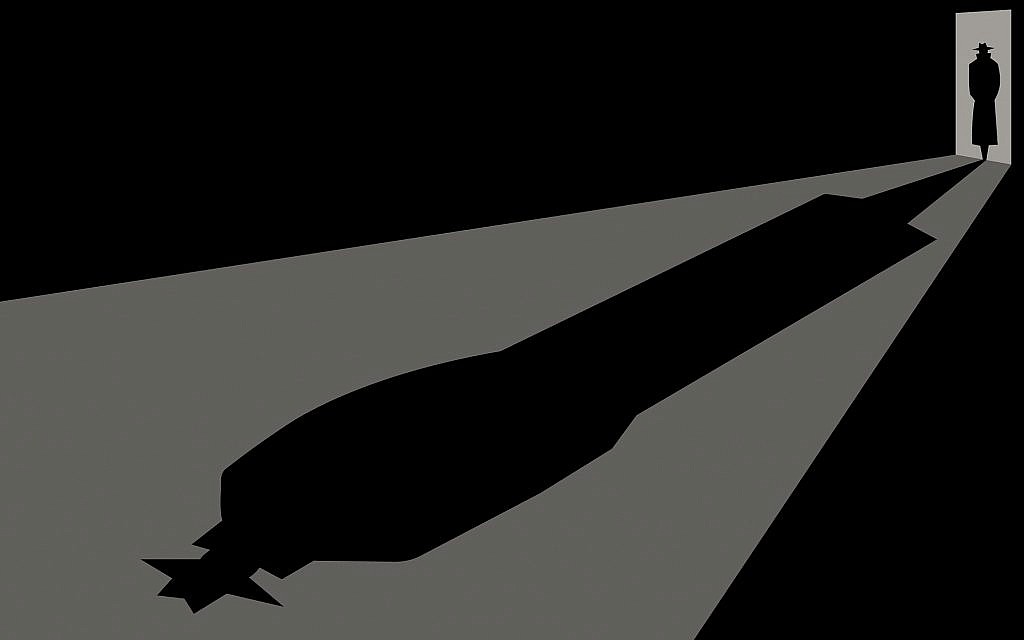
Spies working for Israel’s intelligence agency Mossad are quietly being joined by a new generation of sleuths who bring with them unique analytical skills and insights developed from years of immersion in Judaism’s holy scriptures.
In partnership with the Mossad, a new nonprofit organization called Pardes is in the process of recruiting its first cohort of members from Israel’s ultra-Orthodox, or Haredi, population and training them for work in the Mossad and possibly other Israeli intelligence agencies. The Mossad has already begun recruiting ultra-Orthodox Israelis elsewhere, after lengthy training programs.
“It is hugely important to include a variety of different minorities into a workforce, as it helps increase originality and creative and strategic thinking,” said Pardes founder Rabbi Moshe Kahan, 44, a yeshiva graduate and a lecturer in Semitic languages at the Ben-Gurion University of the Negev, in a phone interview.
Pardes, not to be confused with the Jerusalem-based co-ed Pardes Institute of Jewish Studies, is preparing for its first students to start preparatory academic studies.
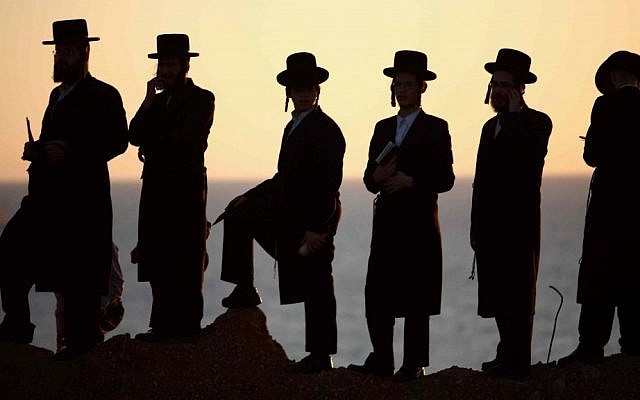
Ultra-Orthodox men (illustrative photo: Yehoshua Yosef/Flash90)
The ultra-Orthodox population, accustomed to years of textual study, is trained in analytic and out-of-the-box thinking skills that can be used for the benefit of the nation’s security, Kahan said.
“We want to contribute the best of our minds” to Israel’s security forces, he said, specifying that he was referring to those “that are not suited to solely studying Torah.
“There is an untapped resource of brain power that can be used. They bring with them critical and analytical thinking that is unique and not seen anywhere else. In the yeshiva world nothing is taken for granted,” he said. Talmudic study prizes original, creative, outside-the-box approaches as texts under discussion are examined and re-examined.
Israel’s Mossad, responsible for intelligence collection, covert operations and counter-terrorism, is believed to employ some 7,000 workers, making it the second-largest spy agency in the Western world after the CIA in the US.
The agency, along with Israel’s other spy agencies, including the Shin Bet internal security service, has recently stepped out of the shadows to tap into the local startup ecosystem in order to stay abreast of technological and cybersecurity developments. The Mossad recently launched its Libertad technology innovation fund to invest in a variety of fields including fintech, robotics, artificial intelligence and big data.
In tandem with its biblically inspired motto, “Where there is no guidance, a nation falls, but in an abundance of counselors there is safety,” the Mossad is now seeking to variegate its workforce, with diversity being seen as a key driver of innovation.
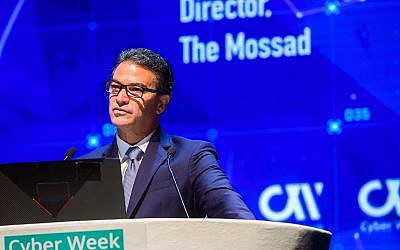
Mossad head Yossi Cohen speaks at a cyber conference at Tel Aviv University on June 24, 2019. (Flash90)
“We’re working on enlarging the social circles from which we recruit Mossad personnel,” Yossi Cohen, who has headed the Mossad since 2016, told a recent conferencein Herzliya. “Our strength lies in our diversity. There is operational logic behind this, and a moral imperative.”
Over the past two years Mossad has started integrating ultra-Orthodox members into its ranks, after long, customized training programs, Cohen said. “One of our collaborations is with Pardes… The aim is to integrate Haredim in all of the activities of the organization.”
In Judaism, Pardes is an acronym that refers to four types of approaches to interpretation of the holy texts: Pshatlooks at the literal meaning of the words, Remez, or hint, studies the deeper meaning behind the text, Derash, from the Hebrew word to inquire, searches for meanings through comparisons, and Sodseeks the secretive or the mystical meaning of the text.
“We want to match the study of the Torah with the ‘Sod,’ the secret activities of Israel’s intelligence and security organizations,” quipped Kahan, who has a doctorate in both the Hebrew language and Semitic literature.
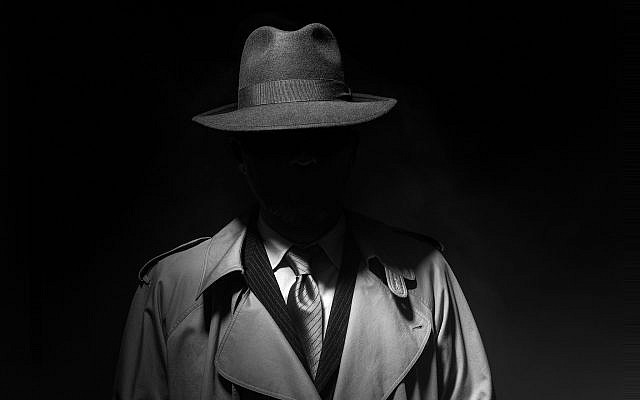
Illustrative image of a spy. (cyano66; iStock by Getty Images)
The ultra-Orthodox community is among the poorest in the nation, as many of its men study Torah full-time and eschew the workforce while the women traditionally bring in a salary. In 2017, the ultra-Orthodox accounted for 9% of Israel’s population, according to Central Bureau of Statistics data, but are seen growing to 29% by 2059 thanks to a high birthrate.
Thus, the nation is making an effort to integrate the ultra-Orthodox population into the workforce through training initiatives. Organizations such as KamaTech are already making inroads in the tech sector, which is suffering from a shortage of skilled workers. Now, Pardes wants to pave the way to the security agencies.
Pardes’ Kahan is the one who approached the Mossad with the idea, and the agency took up the challenge. Some units of the Israel Police have also joined the initiative and Kahan hopes other intelligence arms will also help the enterprise grow.
Two thousand Haredi applicants to the first Pardes program, which is due to begin in September, have been whittled down to 200, out of which some 70 to 80 people will be selected by a committee of representatives of the secret services, recruitment psychologists and Haredi-world specialists, explained Kahan. If successful, the program will take place every year.
The first cohort is for men only. Kahan says he believes eventually the program will be extended to women as well, subject to approval from the rabbis.
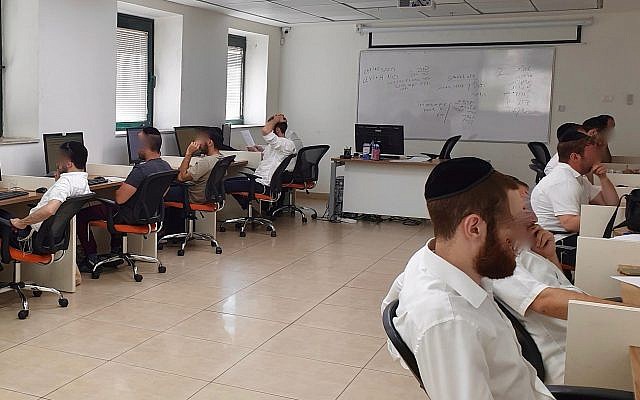
Ultra-Orthodox men taking an analytical skills exam to enter the Pardes program, which will train them to work with Israeli security agencies, including the Mossad (Courtesy)
Candidates will attend a year of preparatory classes at two sites in Jerusalem, where they will be taught a basic curriculum including intensive math and English. Then they will move on to courses taught on the campuses of Tel Aviv and Ben-Gurion universities, which will work closely with Pardes to tailor their bachelors degree studies to the needs of its students.
Some will focus on computer sciences and cybersecurity, said Kahan, while others will study social sciences with a focus on geopolitical and political developments to prepare for work as analysts for the security agencies.
Rabbi Moshe Kahan, founder of Pardes, a program to train Haredim to work with Israeli security agencies, including the Mossad (Courtesy)
Throughout their academic studies, Kahan emphasizes, students will continue their Torah and religious studies, maintaining the values they have grown up with. They will be closely accompanied on their journey by Avraham Sender, the rabbi of the program.
From the first year of studies, the students will also work at the agencies, said Kahan, to gain a feel for the job.
Funding for tuition and a monthly stipend will be given via private donations, the security agencies and some ministries, said Kahan.
Hagay Gilan Gluskinus, a yeshiva alumni and a former operative for the Mossad, where he served in a number of roles for more than 25 years, is the professional coordinator of the program. Prof. Norman Stillman, the Schusterman/Josey Professor of Judaic History Emeritus at the University of Oklahoma and founding director of its Center for Judaic & Israel Studies, is the head of the Pardes academic department.
Success, said Kahan, will be reached when one or more of the Pardes graduates becomes a legend, entering the annals of the great men and women who have made a mark on Israel’s security and safety.

No comments:
Post a Comment